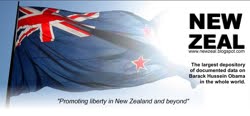skip to main |
skip to sidebar
Non-Muslim Americans don’t have a clue what is going on in the Muslim communities in Europe where the Muslim populations have grown to exceed more than 5%. As their numbers grow so do their demands to change laws to accommodate their cultural and religious differences. In England the government has conceded to those demands to allow over 50 Islamic Sharia courts to supersede British civil law in many matters affecting Muslims. In France and Germany the Muslim population, which has increased to nearly 10%, entire Muslim communities have become off-limits to law enforcement and non-Muslims are even afraid to enter them. Switzerland has recently placed a ban on the spread of mosques and France has banned the full body covering called the Burqa.
Reuters News Service reported last month on the growing Muslim problem in Germany where the head of the government, Chancellor Angela Merkel, has been pressured into making comments on it.
German Muslims must obey law, not sharia: Merkel
Chancellor Angela Merkel said on Wednesday Muslims must obey the constitution and not sharia law if they want to live in Germany, which is debating the integration of its 4 million-strong Muslim population.
In the furor following a German central banker's blunt comments about Muslims failing to integrate, moderate leaders including President Christian Wulff have urged Germans to accept that "Islam also belongs in Germany."
The debate comes against a backdrop of U.S. and British concerns over the threat of terrorist attacks by militant Islamists living in Germany, with Berlin toning down such fears.
"Now we obviously also have Muslims in Germany. But it's important in regard to Islam that the values represented by Islam must correspond with our constitution," said Merkel.
"What applies here is the constitution, not sharia."
Merkel said Germany needed imams "educated in Germany and who have their social roots here" and concluded: "Our culture is based on Christian and Jewish values and has been for hundreds of years, not to say thousands."
The need for imams, Muslim Clerics, to be educated in Germany is a reference to the hidden fact that most mosques, which are constructed with financial aid from the Saudi Arabian government, use imans that are brought in from hard-line Islamic countries. It is those imans who ferment the spread of radical Islamic fundamentalism due to the fact that Wahhabism is the ultra-conservative form of Islam that rules the Saudi government. The same applies to the spread of mosques across America, many of which are also being funded by Saudi Arabia.
Now the influence of a small minority of hard-line Muslims in Canada is beginning to be heard in the Canadian Parliament calling for a “parallel society” to be established in Canada. Meanwhile, in America, while our overall Muslim population is only 1.3%, there are several very large clusters of Muslims living in Minneapolis, Minnesota, Dearborn, Michigan and a few other cities that have begun to excerpt demands of their own.
The following story comes from the Canadian newspaper, the National Post, that illustrates what changes may be felt on this side of the Atlantic.
Islamist groups seek ‘parallel society’ in Canada: report
Stewart Bell, National Post · Saturday, Nov. 13, 2010
TORONTO — A newly released intelligence report says hardline Islamist groups want to build a “parallel society” in Canada, which could undermine the country’s social cohesion and foster violence.
The de-classified Intelligence Assessment obtained by the National Post says extremists have been encouraging Muslims in the West to reject Western society and to live in “self-imposed isolation.” The report focuses on groups such as the Muslim Brotherhood and Hizb-ut-Tahrir, which do not advocate terrorist violence but promote an ideology at odds with core Western values.
“Even if the use of violence is not outwardly expressed, the creation of isolated communities can spawn groups that are exclusivist and potentially open to messages in which violence is advocated,” it says. “At a minimum, the existence of such mini-societies undermines resilience and the fostering of a cohesive Canadian nation.”
The report was written by the Integrated Threat Assessment Centre, which monitors threats to Canada’s national security and is composed of representatives of CSIS, the RCMP, Foreign Affairs, National Defence and other agencies.
It was circulated internally last year after Hizb-ut-Tahrir invited Muslims to a conference in Mississauga, Ont., to discuss the establishment of an Islamic caliphate. A copy of the document was recently released under the Access to Information Act.
“While the issue of violence by Islamist groups has continued to be a counter-terrorism priority for Western governments and particularly security services for many years, Islamist social ideology appears to have gone unstudied, precisely because the use of violence is either unsupported or understated,” it says. “Nevertheless, several Islamist movements advocate a rejection of Western society and mores, and encourage self-imposed isolation of Muslims in the West.”
It says Islamists believe that Islam should govern all aspects of society and that Sharia law and state law should be “synchronized.” Extremists forced to flee Muslim-majority countries such as Egypt now preach these beliefs in the West, it says, adding, “By definition, their world views clash with secular ones. A competition for the hearts and minds of the diaspora Muslims has hence begun.”
“Some Islamists advocate isolationism and the establishment of a parallel society,” it says. “Isolationism can lead to conditions where extreme messages can incubate and eventually become the catalyst for violence. At a minimum, isolationism undermines a multicultural and democratic society.”
The report notes that Mennonites and Doukhobors have also sought to isolate themselves form the mainstream. “Why then, should Canadians be worried about Islamist extremists who reject democracy or isolate themselves from non-Muslims?” it asks.
But activist Tarek Fatah said there is a difference. “You can talk about the Mennonites but the Mennonites’ aim in life is not to destroy Western civilization, it is seclusion.”
sbell@nationalpost.com
It would be very useful for concerned Americans to educate themselves on these critical issues and for the news media to fairly report both sides of the controversy. Unfortunately, those who oppose the spread of mosques are falsely labeled as being Islamophobic (think wingnuts) while the proponents such as CAIR (which conspired to fund Hamas terrorists) are regarded as legitimate spokesmen for all things about Muslims. There are several references on this blog to Wahhabism. It has been found in textbooks in many mosques in America because the agreement that Saudi Arabia places on mosque builders is that Wahhabism must be taught in them. Coincidentally, there have been many mosques in America that have been used as recruitment and training grounds for Islamic terrorists. Here is part of what Wikipedia defines this word:
Wahhabi (Arabic: Al-Wahhābīyya الوهابية) or Wahhabism is a Sunni Islamic sect based on the teachings of Muhammad ibn Abd-al-Wahhab, an 18th century scholar from what is today known as Saudi Arabia, who advocated purging Islam of what he considered impurities. Wahhabism is the dominant form of Islam in Saudi Arabia It is often referred to as a "sect"or "branch" of Islam, though its supporters and some opponents reject such appellations. It has developed considerable influence in the Muslim world in part through Saudi funding of mosques, schools and social programs.
Wahhabism in the United States
A study conducted by the NGO Freedom House found Wahhabi publications in mosques in the United States. These publications included statements that Muslims should not only "always oppose" infidels "in every way", but "hate them for their religion ... for Allah's sake", that democracy "is responsible for all the horrible wars of the 20th century", and that Shia and certain other non-Wahhabi Muslims were infidels.
The Saudi government stated: "[It has] worked diligently during the last five years to overhaul its education system [but] [o]verhauling an educational system is a massive undertaking... As with previous reports, Freedom House continues to exhibit a disregard for presenting an accurate picture of the reality that exists in Saudi Arabia."
A review of the study by Institute for Social Policy and Understanding (ISPU) complained the study cited documents from only a few mosques, arguing most mosques in the U.S. are not under Wahhabi influence. ISPU comments on the study were not entirely negative however, and concluded:
"American-Muslim leaders must thoroughly scrutinize this study. Despite its limitations, the study highlights an ugly undercurrent in modern Islamic discourse that American-Muslims must openly confront. However, in the vigor to expose strains of extremism, we must not forget that open discussion is the best tool to debunk the extremist literature rather than a suppression of First Amendment rights guaranteed by the U.S. Constitution."
Militant and political Islam
What connection, if any, there is between Wahhabism and Jihadi Salafis is disputed. Among others, Daniel Pipes observes "a direct line between the Wahhabis and Osama bin Laden". However, Natana De Long-Bas, senior research assistant at the Prince Alwaleed Center for Muslim-Christian Understanding at Georgetown University, argues:
The militant Islam of Osama bin Laden does not have its origins in the teachings of Ibn Abd-al-Wahhab and is not representative of Wahhabi Islam as it is practiced in contemporary Saudi Arabia, yet for the media it has come to define Wahhabi Islam in the contemporary era. However "unrepresentative" bin Laden's global jihad is of Islam in general and Wahhabi Islam in particular, its prominence in headline news has taken Wahhabi Islam across the spectrum from revival and reform to global jihad.
Noah Feldman distinguishes between what he calls the "deeply conservative" Wahhabis and what he calls the "followers of political Islam in the 1980s and 1990s," such as Egyptian Islamic Jihad and later Al-Qaeda leader Ayman al-Zawahiri. While Saudi Wahhabis were "the largest funders of local Muslim Brotherhood chapters and other hard-line Islamists" during this time, they opposed jihadi resistance to Muslim governments and assassination of Muslim leaders because of their belief that "the decision to wage jihad lay with the ruler, not the individual believer"






















You left out the best part. This story reported in other blogs adds ""Because who among us," remarks Kathy Shaidle, "can forget the fateful day when Mennonites drove their horse drawn buggies into the lobbies of the World Trade Center...?"
ReplyDelete